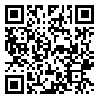Lorestan University , valipour.v@lu.ac.ir
Abstract: (476 Views)
Background: The effects of saffron extract and resistance training on some diabetes indices have been determined, but their combined effect on BDNF levels in rats with type 2 diabetes has not been investigated. Therefore, this study aimed to investigate the effect of saffron extract during resistance training on BDNF levels in the hippocampus of rats with type 2 diabetes.
Methods: In this experimental study, 30 adult male rats were divided into five groups: control (C), diabetes (D), diabetes-resistance training (DT), diabetes-saffron extract (DS) and diabetes-saffron extract- resistance training (DTS). Resistance training performed five sessions/w for six weeks. Blood glucose levels and hippocampus BDNF levels were measured. Data was analyzed using one-way ANOVA at the significance level of p<0.05.
Results: Blood glucose levels of all groups were significantly higher than C group (p=0.001). Blood glucose levels in DT, DS and DTS groups were significantly lower than D group (p=0.001). Also, the blood glucose levels of the DTS group was significantly lower than that of the DT group (p=0.014). However, BDNF levels of all groups were significantly lower than C group (p<0.05). Also, BDNF levels of D, DT and DS groups were significantly lower than DTS group (p<0.05). However, BDNF levels of D, DT and DS groups were not significantly different (p<0.05).
Conclusion: Resistance training also saffron extract alone and during resistance training reduce blood glucose levels in diabetic rats. However, saffron extract increases BDNF levels only during resistance training. Therefore, for more efficiency, saffron extract should be consumed during resistance training.
Methods: In this experimental study, 30 adult male rats were divided into five groups: control (C), diabetes (D), diabetes-resistance training (DT), diabetes-saffron extract (DS) and diabetes-saffron extract- resistance training (DTS). Resistance training performed five sessions/w for six weeks. Blood glucose levels and hippocampus BDNF levels were measured. Data was analyzed using one-way ANOVA at the significance level of p<0.05.
Results: Blood glucose levels of all groups were significantly higher than C group (p=0.001). Blood glucose levels in DT, DS and DTS groups were significantly lower than D group (p=0.001). Also, the blood glucose levels of the DTS group was significantly lower than that of the DT group (p=0.014). However, BDNF levels of all groups were significantly lower than C group (p<0.05). Also, BDNF levels of D, DT and DS groups were significantly lower than DTS group (p<0.05). However, BDNF levels of D, DT and DS groups were not significantly different (p<0.05).
Conclusion: Resistance training also saffron extract alone and during resistance training reduce blood glucose levels in diabetic rats. However, saffron extract increases BDNF levels only during resistance training. Therefore, for more efficiency, saffron extract should be consumed during resistance training.
Article number: 12
Send email to the article author
| Rights and permissions | |
 |
This work is licensed under a Creative Commons Attribution-NonCommercial 4.0 International License. |






